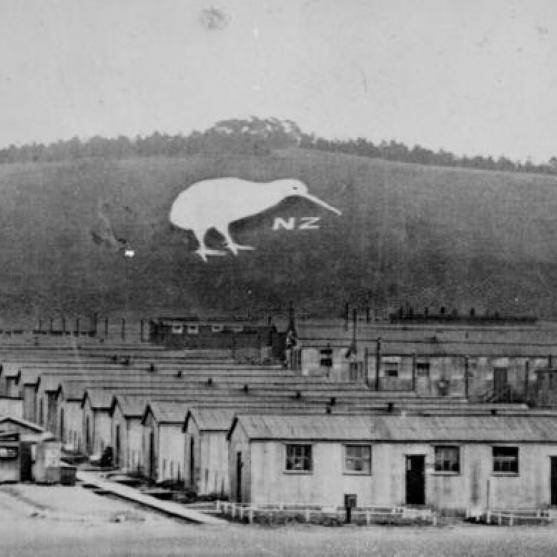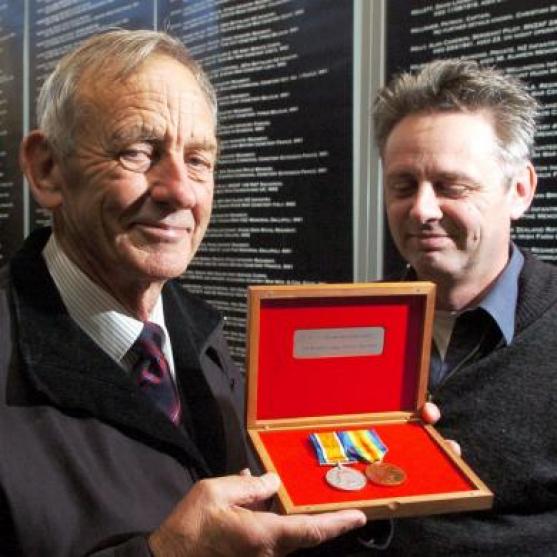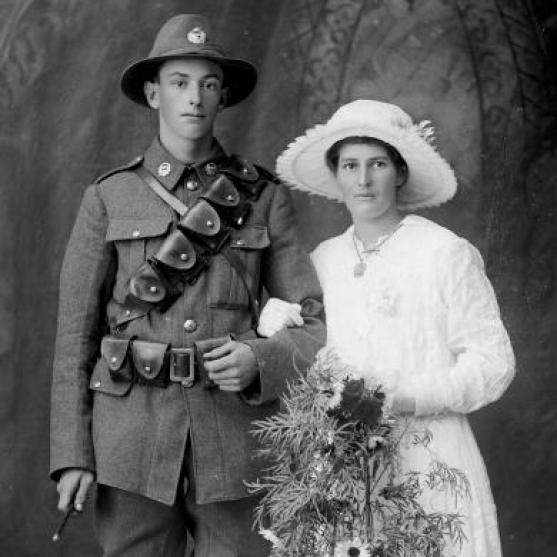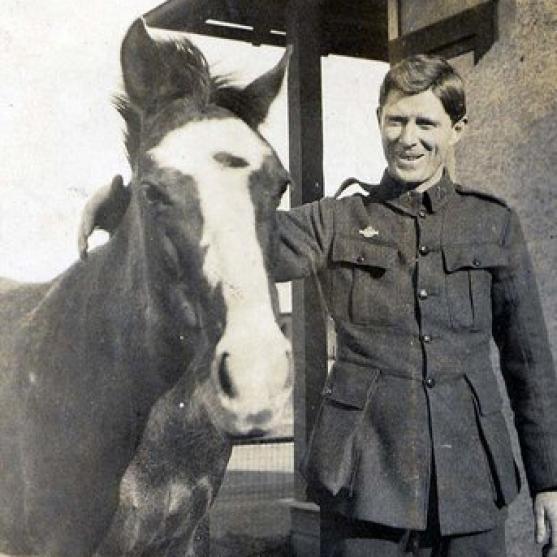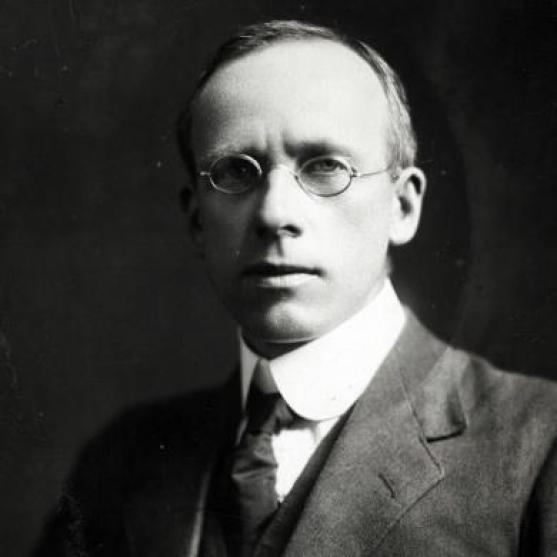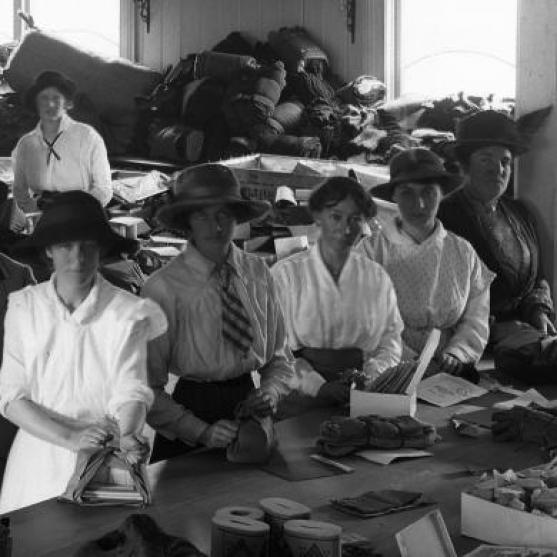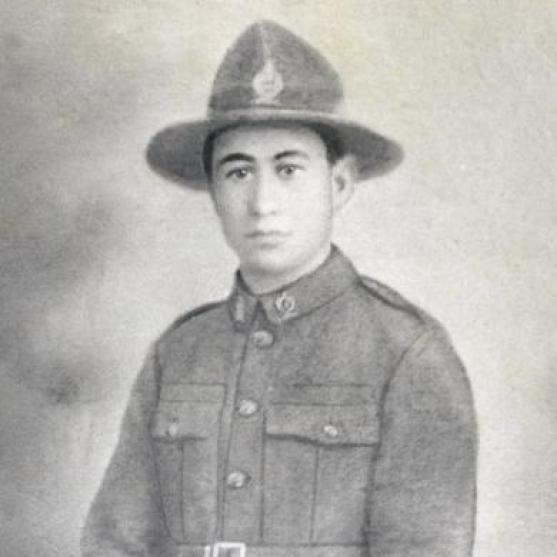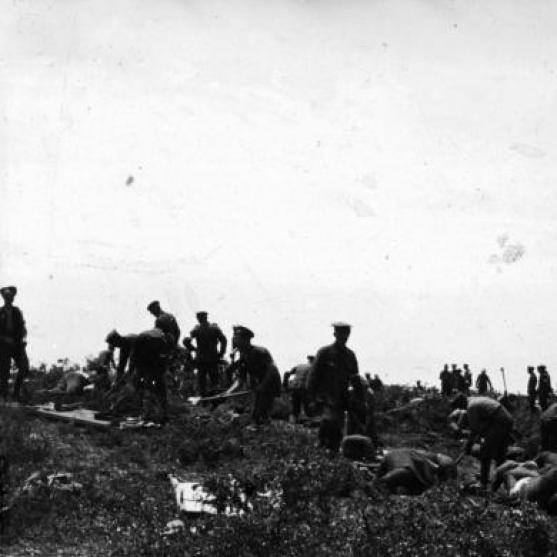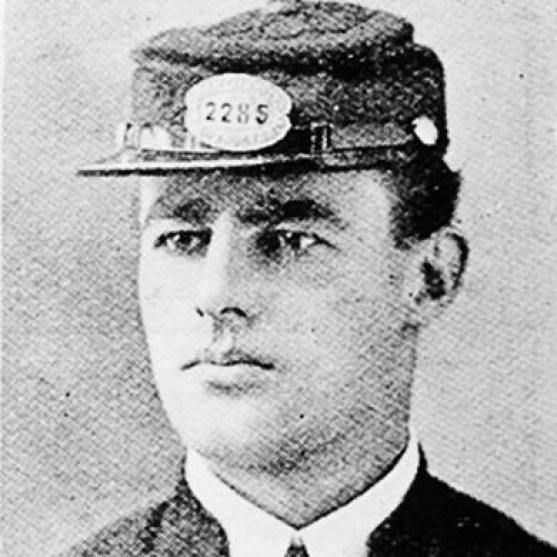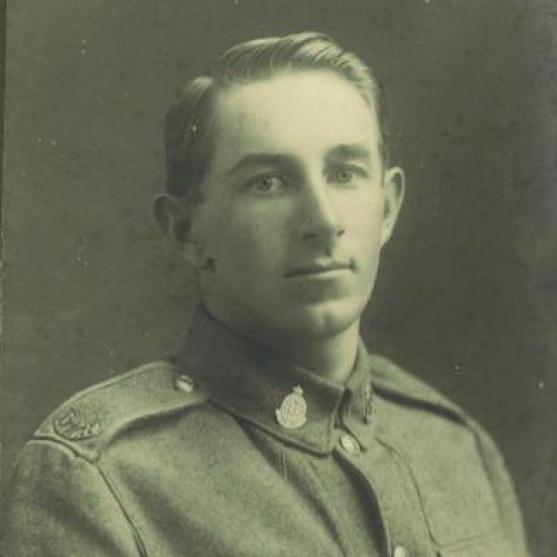Personal stories
On 14-15 March 1919, New Zealand troops based at Sling Camp in England rioted. As a way of keeping the soldiers occupied after the riot, a massive kiwi surveyed by Sergeant Major Victor Low was carved into the hillside above the camp.
At dawn on 24 February 1918, Private Victor Spencer became the fifth and final New Zealander to be executed during the First World War. In this article, former MP Mark Peck explains what drove him to sponsor a bill pardoning the five soldiers.
Hundreds of New Zealand men enlisted for war as bachelors, but embarked as husbands. What do these pre-departure weddings suggest about the wartime marriage habits?
Getting a foothold in Palestine was more difficult than expected, as Trooper Vincent Barry of the Wellington Mounted Rifles found out at the First Battle of Gaza.
After conscription was introduced in 1916, nearly 100 people were imprisoned for opposing it. Some of them would go on to have notable political careers – none more so than future prime minister Peter Fraser.
Kirstie Ross, historian and curator at Te Papa, looks at the introduction and impact of military conscription 100 years ago.
The national war effort went beyond service in the armed forces. In these short personal stories, we look at some of the experiences of New Zealand's women at home during the war.
Risking death, injury and illness, Cook Islander Solomon Isaacs showed remarkable bravery and loyalty during three years fighting for his adopted country and the British Empire.
On 24 May 1915 the Anzacs and the Ottomans observed an armistice at Gallipoli to bury their dead in no-man's-land. What did the New Zealanders think about that day?
In an age of tweets and Facebook updates it can be difficult to conceive of a time when it took days, weeks or months to hear news.
“This is the shrapnel bullet which wounded me on 31/12/16...”. Sarah Lang tells the story of John James Jackson.
